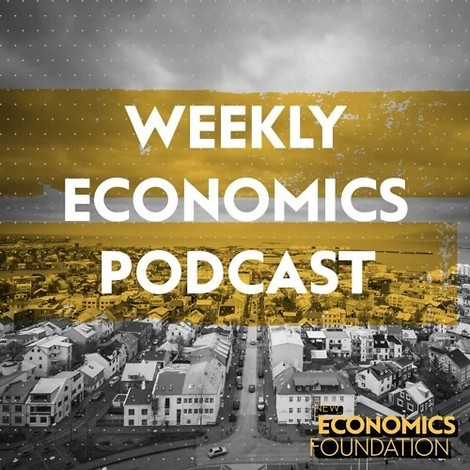Your podcast discovery platform
Curious minds select the most fascinating podcasts from around the world. Discover hand-piqd audio recommendations on your favorite topics.

piqer for: Boom and bust Deep Dives Global finds Globalization and politics
Will Kherbek is the writer of the novels Ecology of Secrets (2013) and ULTRALIFE (2016), both published by Arcadia Missa. His Ph.D. was granted by the University of London in 2014. In 2018, the poetry collections 26 Ideologies for Aspiring Ideologists (If a Leaf Falls Press) and Everyday Luxuries (Arcadia Missa) were published. Kherbek is also the writer of the essay "Technofeudalism and the Tragedy of the Commons" (2016) which appeared in the debut issue of Doggerland's journal. The essay considers the role of information in the writing of the Nobel Prize winning economist, Elinor Ostrom, in relation to the concept of the "tragedy of the commons" as formulated by Garrett Hardin. He has written about high frequency trading and finance for the award-winning German language publication, BLOCK, and has consulted and appeared at events with the conveners of the Alternative School of Economics and Rabbits Road Institute in London. His art journalism has appeared widely in publications including Flash Art, Spike Magazine, MAP Magazine, Berlin Art Link, Rhizome.org, and others.
The Future Is Murky But Shiny: Data In The Age Of Oligarchs
The rather functionally named Weekly Economics Podcast (WEP) is a creation of the New Economics Foundation, which bills itself as the UK's only "people powered think tank". The show touches on a range of economic concerns and the ways in which questions about money and finance infuse political dynamics.
The most recent episode focuses on the UK's National Health Service to powerful impact, but an episode from a few months ago demonstrates the transnational significance of the show. The episode is titled "The Rise of the Data Oligarchs" and considers the political implications of the spread of privatised digital platforms with contributions from Carl Miller of the Centre for the Analysis of Social Media at the think tank Demos and NEF researcher Duncan McCann.
Podcasts about the dystopian possibilities of tech giants dealing in data are proliferating more quickly than fake Instagram models. This episode of the WEP offers plenty for tech dystopians to chew over. For example, presenter Hanna Wheatley's question about China's "social credit system" that, like the Black Mirror episode, ranks the social behaviour of citizens. McCann cites the potential horrors of predictive policing by algorithm, and Miller recounts the cynical use of the spectre of Chinese state surveillance in Huawei technologies by Cisco to promote its own goods (which were being fitted with surveillance modifications by US spy agencies).
What sets this episode of the WEP apart is the persistent focus on the tension of technology and democracy across borders. Miller argues that the speed of tech development requires a political system that can be equally nimble in reining in excesses. "We're going to have to reopen a very old question," Miller says: the question of how democracy works. The algorithms, it seems, have already opened the question. The real challenge is realising the fact in time for citizens to provide potential answers.
